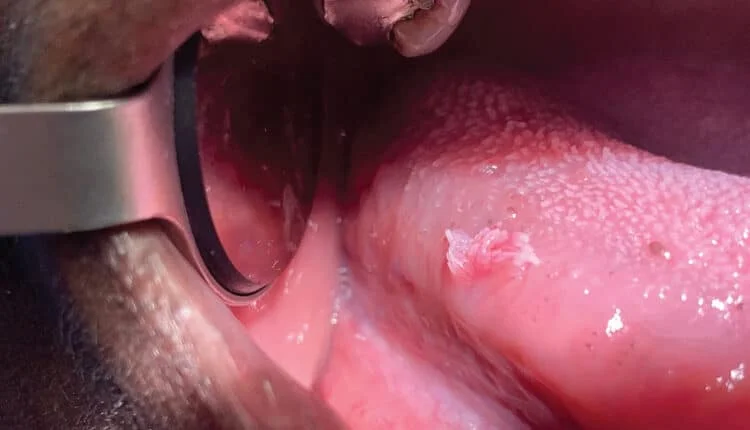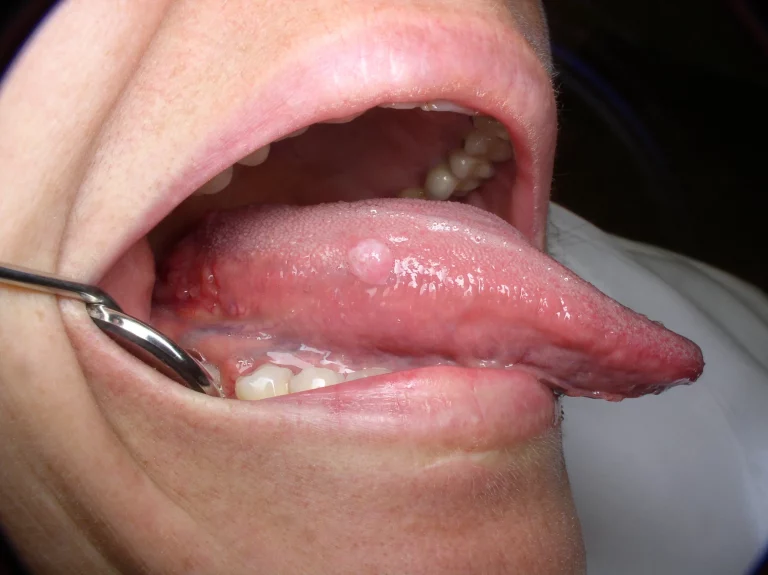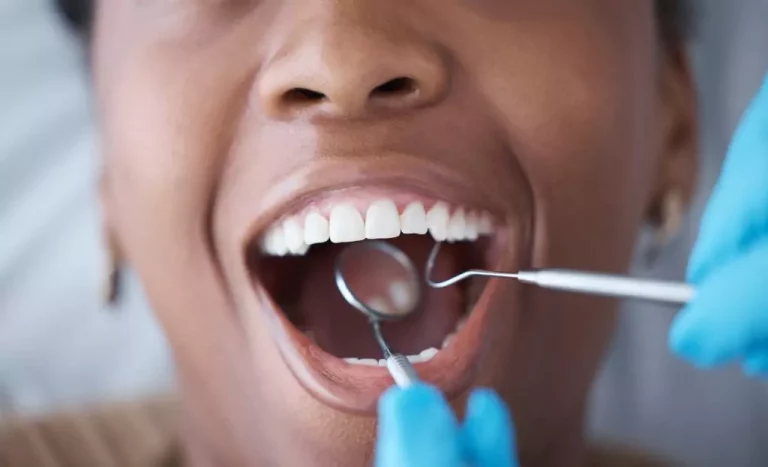Oral Cancer Screenings
Oral cancer, a disease on the rise

Oral cancer is a disease that affects thousands of people around the world each year.
In recent years, the number of people diagnosed with mouth or throat cancer has increased. Most of these cases are related to human papillomavirus (HPV) infection.
Oral cancer is treatable if diagnosed early, which is why early detection is an essential part of treatment.
Where can oral cancer occur?

Oral cancer can occur on the lips, tongue, gums, inside of the cheeks, under the tongue, on the roof of the mouth, or in the area of the wisdom teeth.
What are the symptoms of oral cancer?
The symptoms of oral cancer may be mild at first, but it is important to pay attention to any changes in the mouth or throat.
Some symptoms are:

- red or white spots
- A sore that does not heal
- Pain or difficulty swallowing
- Ear or jaw pain.
- voice changes
- constant bad breath
- numbness of the tongue
- Difficulty moving the jaw or tongue.
Dental aesthetics has made significant progress in recent years, with new techniques that restore oral health and improve dental appearance with effective, less invasive procedures. Digital technologies such as intraoral scanning and 3D printing make it easier to plan and design the required procedures accurately. In other words, new technologies make it easier to project what the result will be after treatment and thus identify the appropriate therapeutic plan for each person.
A trend-setting concept in this field entails less invasive dental aesthetics, with satisfactory results and minimal tissue damage. For example, dental microabrasion uses soft, abrasive materials to remove surface stains from teeth, while microdentistry uses precise techniques to correct small defects in teeth, without the need for their removal.

19 Natural Antibiotics to Ward Off Any Dental Infection
Sign up to receive daily email dentist tips and challenges, as well as our comprehensive Better smile Guidebook.
Early detection: key to treatment

The purpose is to detect oral cancer or precancerous lesions at an early stage, at a time when it is easier to eradicate the disease.
The exam to diagnose oral cancer does not require special preparation and can be performed in a routine consultation. During the consultation, in addition to inspecting the inside of the mouth, the dentist palpates the soft tissues of the oral cavity to check for lumps or other abnormalities. If deemed necessary, the neck and throat are also checked.
Sometimes additional tests are done, such as a dye screening test, which involves rinsing the mouth with a special blue dye. Abnormal cells in the mouth absorb the dye and turn blue.
Another diagnostic test is light detection. The oca is illuminated with a special light, which makes healthy tissue appear dark and abnormal tissue appears white.
If any sign of cancer or precancerous lesions is found, a subsequent follow-up consultation will be carried out to observe the changes registered by the abnormal area.
A biopsy may also be required to specify the diagnosis.
What factors increase the risk of developing oral cancer?
Some factors that affect the predisposition to oral cancer are:

- Tobacco use in any form (cigarettes, pipes, chewing tobacco, and snuff)
- Excessive consumption of alcohol.
- Previous diagnoses of oral cancer.
- Excessive sun exposure.
Conclusion
Find the help you need
Oral cancer is a disease that can affect quality of life.
Early detection of oral cancer is key to treatment with a greater chance of recovery. It is important to pay attention to any changes in the mouth or throat and seek professional attention.
If attention is required for the early diagnosis of oral cancer, you can consult our directory of dental professionals, where you will find different options that provide assistance in this regard.

19 Natural Antibiotics to Ward Off Any Dental Infection
Sign up to receive daily email dentist tips and challenges, as well as our comprehensive Better smile Guidebook.
Our Doctor
Meet Doctor
Dr. Andreas
Dental specialist

19 Natural Antibiotics to Ward Off Any Dental Infection
Sign up to receive daily email dentist tips and challenges, as well as our comprehensive Better smile Guidebook.



